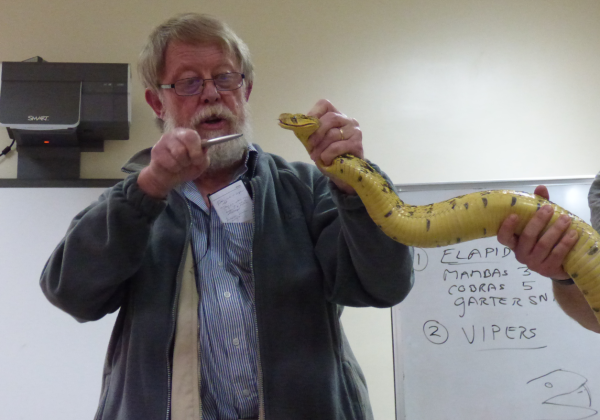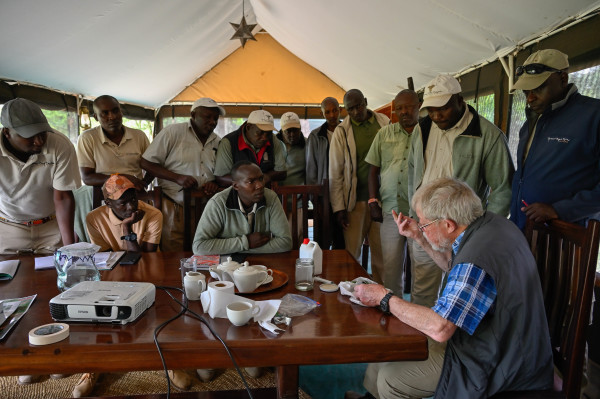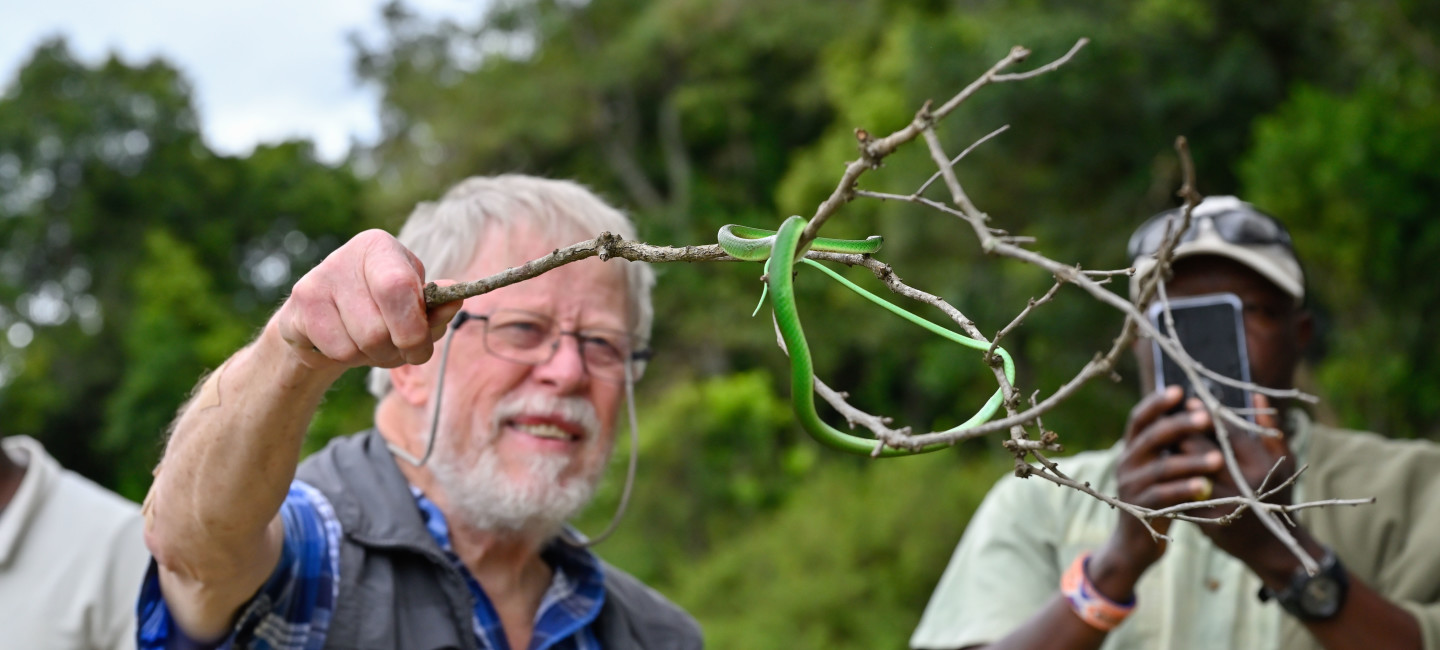Lecturer helping to improve public health response to snake bites
22nd November 2023 – Tags: Access to Higher Education, Staff
A lecturer at City College Norwich is playing a key role in efforts to reduce serious injuries and lives lost to venomous snake bites in some of the world's poorest communities.
Stephen Spawls, who grew up in Kenya and has lived and worked in Egypt, Botswana and Ethiopia, recently returned to Kenya for a conference on the issue. The aim of the event was to spearhead a new international advisory group, with a remit to inform public health initiatives and improve how the problem of snake bites is tackled in poorer parts of the world.
The devastating impact of snake bite injuries disproportionately affects people from the poorest communities in parts of Africa, Asia, and Central and South America.

Stephen Spawls handlng a puff adder
Those living in poor rural communities are much more likely to be bitten by a snake in the first place. Reasons for this include the fact that they are more likely to be living and working in close proximity to snakes, living in accommodation that snakes can easily get into, with a lack of electric lighting, and poor footwear.
When people in these circumstances are bitten by a snake, their access to anti-venom treatment (which needs to be administered quickly) can be impeded by the distance to the nearest health clinic and lack of awareness around identifying different types of snakes and what to do following a bite.
Stephen describes the issue as an ‘unseen medical challenge’ because it disproportionately affects poor communities, happens on a sporadic basis, and is not an area of medicine in which drug companies are heavily invested.
From a public health perspective, there are lots of practical steps that can be taken to tackle the problem”, says Stephen. “There are simple, low-cost, solutions that can significantly reduce the likelihood of people getting bitten by snakes. For example, providing bed nets, ensuring people have strong footwear, and providing night lights so they do not accidentally step on a snake in the dark.”
He continues, “There is also a need for public education at the local level, in clinics and hospitals, so that people know what to do if they are bitten by a snake.”

Stephen Spawls delivering a training course in the Maasai Mara, Kenya
Stephen has played an active role in helping to train health professionals in Kenya and Tanzania, after co-writing a book on Africa’s dangerous snakes, recently revised and published in 2020.
Mr Spawls grew up in Kenya and it was there that he developed his lifelong interest in African wildlife. He caught his first chameleon at the age of 6 and spent much of his childhood seeking out snakes.
Stephen is a passionate advocate for snakes and he has written extensively in the area of herpetology.
He has been a lecturer at City College Norwich for 18 years and teaches on the college’s Access to Higher Education Diploma in Science for Health Practitioners.
One of the outcomes from the conference in Kenya is a new framework for sharing information by those working in the area of snakebites and public health. It is hoped that this will pave the way to the establishment of an advisory group that would work directly with the United Nations and other national and international health agencies.
It is vital that we do more to protect people in poor communities from the effects of snake bites. As well as reducing deaths from snake bites, we also want to put in place the practical measures and public health education that would see fewer people getting bitten in the first place. A serious bite, not treated quickly enough, can result in injuries that might seriously limit a person’s ability to work, leading to even greater poverty.”
